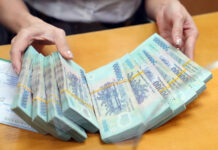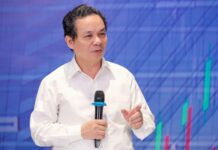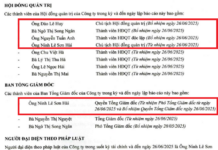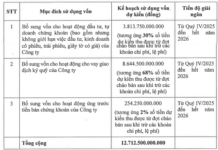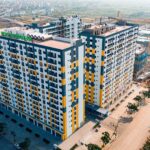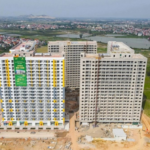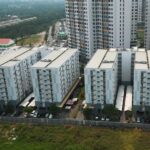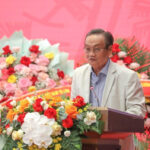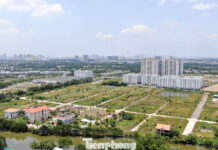According to the Ministry of Construction, the previous Housing Law of 2014 stipulated that the main beneficiaries of social housing were low-income workers. However, the scope has now expanded to include officers, civil servants, public employees, armed forces, and households with preferential treatment policies.
Simply put, those facing economic and housing difficulties will receive government support to purchase affordable housing, namely social housing.
Specifically, under the 2023 Housing Law, the beneficiaries of social housing support policies include:
Individuals with revolutionary merits and family members of martyrs who are eligible for housing improvement support according to the Ordinance on Preferential Treatment for Revolutionary Merit;
Poor and near-poor households in rural areas, including those regularly affected by natural disasters and climate change;
Poor and near-poor households in urban areas;
Low-income individuals in urban areas;
Factory workers and employees of businesses, cooperatives, and cooperative alliances, both inside and outside industrial parks;
Officers, non-commissioned officers, and professional soldiers of the People’s Armed Forces; public security workers; civil servants; public employees and defenders; those working in cryptography; and those working in other cryptologic organizations and receiving salaries from the state budget;
Civil servants and public employees as defined by the Law on Civil Servants and Public Employees;
Individuals who have returned their official residences in accordance with Clause 4, Article 125 of the 2023 Housing Law, except in cases where the residence was revoked due to violations of the Housing Law;
Households and individuals whose land has been revoked and whose houses have been demolished in accordance with the law, but who have not yet received compensation in the form of housing or land;
Students of universities, academies, colleges, vocational schools, and specialized schools as defined by law, as well as students of public residential ethnic minority schools;
Businesses, cooperatives, and cooperative alliances in industrial parks.
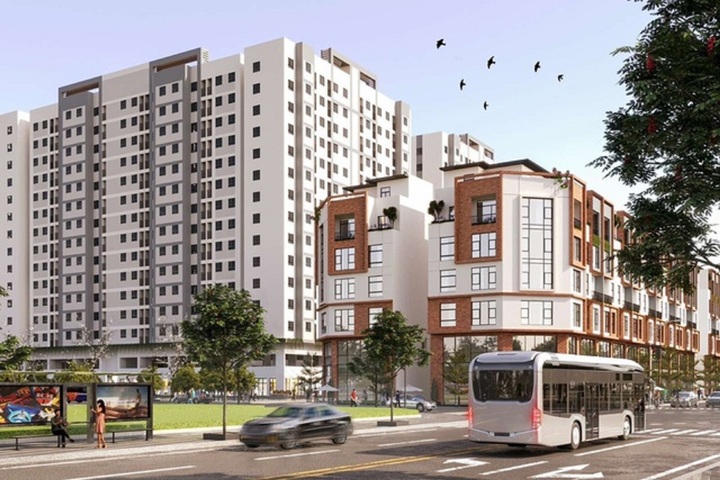
Individuals facing economic and housing difficulties will receive government support to purchase social housing. (Illustrative image)
In addition to the 12 groups of beneficiaries of social housing mentioned above, the law also stipulates 5 groups that are given priority. According to Clause 2, Article 38 of Decree 100/2024/ND-CP, in cases where a project has priority beneficiaries as specified in Point d, Clause 1, Article 79 of the 2023 Housing Law, they are entitled to purchase, rent, or rent-to-own social housing without having to participate in a lottery.
Thus, in addition to the 12 groups of beneficiaries, the 5 groups given priority in purchasing social housing are:
Individuals with revolutionary merits;
Family members of martyrs;
Individuals with disabilities;
Individuals who are resettled in the form of purchasing or rent-to-own social housing;
Female individuals.
In cases where a beneficiary falls under multiple support policies, they will be entitled to the policy with the highest level of support. If multiple beneficiaries meet the criteria and conditions for purchasing social housing, the investor will prioritize them according to the order mentioned above.
The regulation also states: “The list of priority groups is arranged in the order of application submission. Apartments for priority groups are arranged according to the priority list until depletion, after which the remaining applicants will participate in a lottery.”
“The law does not discriminate whether the applicant is a single or married female. Regardless of their marital status, applicants for social housing must meet the conditions regarding housing and income as stipulated in Articles 29 and 30 of Decree 100/2024,” emphasized the Ministry of Construction.
A series of social housing projects to be launched in Hanoi
From the second to the fourth quarter of 2025, many social housing projects will be launched to collect applications and officially sell units.
According to the Ministry of Construction, Hanoi has been assigned a target of completing 4,670 units by the Prime Minister this year. Following an actual inspection, the Ministry of Construction assessed that the city could exceed this target, completing over 4,700 units across 6 projects.
The project in the new Ha Dinh urban area (Tan Trieu commune) was inaugurated in December 2024 and has a scale of 440 apartments after adjustment.
The Thuong Thanh social housing project (Long Bien district) is expected to complete the foundation and basement of the project in the third quarter and top out the main structure by the end of 2025. It is projected to provide 600 social housing units upon completion.
The project in Uy No, Dong Anh district, with a scale of 466 apartments, is expected to top out in October and aims to complete all 466 units this year.
Meanwhile, the CT3 and CT4 projects in the new Kim Chung urban area (Dong Anh district) were inaugurated in March 2025, with a total of 1,599 units. Phase 1 has completed 495 units, and the plan is to complete 1,104 new units, with construction expected to commence in 2026.
The Kim Hoa urban area project (the social housing part at CT1, CT2, CT3, and CT4 land plots) (Kim Hoa commune) was inaugurated in 2023, providing 720 apartments for the area. The project has now completed the rough construction.
The Thanh Lam, Dai Thinh 2 new urban area project (the social housing part at CT-01, CT-02, and CT-07 land plots) in Thanh Lam commune is also on track to be completed soon.
“This year, Hanoi will complete approximately 4,730 social housing units, exceeding the assigned plan by about 60 units,” informed the Ministry of Construction.
“Ambitions for Dong Nai: Achieving the Target of Over 4,200 Social Housing Units by 2025”
“In a recent development, the Vietnamese provincial government of Dong Nai has set an ambitious target for the merged provinces of old Dong Nai and Binh Phuoc. As per the official portal of Dong Nai Province, the Prime Minister has mandated the construction of over 4,200 social housing units in the region by the year 2025. This initiative underscores the government’s commitment to enhancing the welfare and living conditions of low-income workers and those facing housing challenges.”
The Benefits of Social Housing: A New Policy for Tenants and Buyers
The city’s Party Committee has directed relevant departments to explore enhancing support and developing mechanisms to purchase, rent, or lease social housing, dormitories, and accommodations for workers, low-income earners in urban areas, students, individuals with achievements or contributions, and armed forces personnel.
Dr. Tran Du Lich: The Real Estate Market is Like a ‘Business Class Only’ Flight
“The current state of the real estate market is akin to an airplane with only business and first-class seats, devoid of any economy options,” observes Dr. Tran Du Lich.





